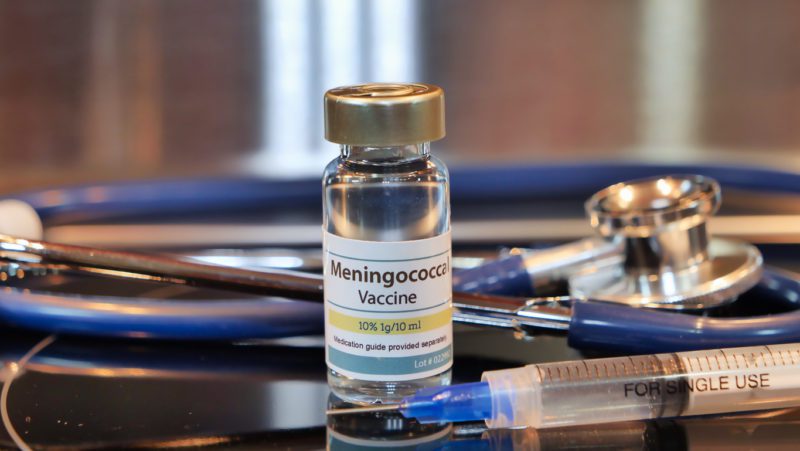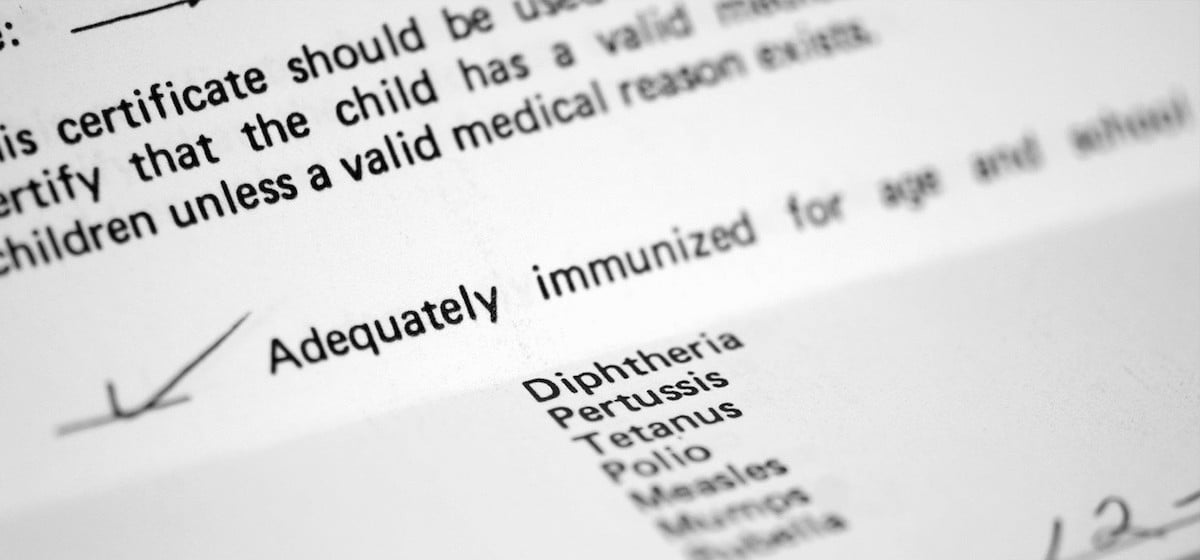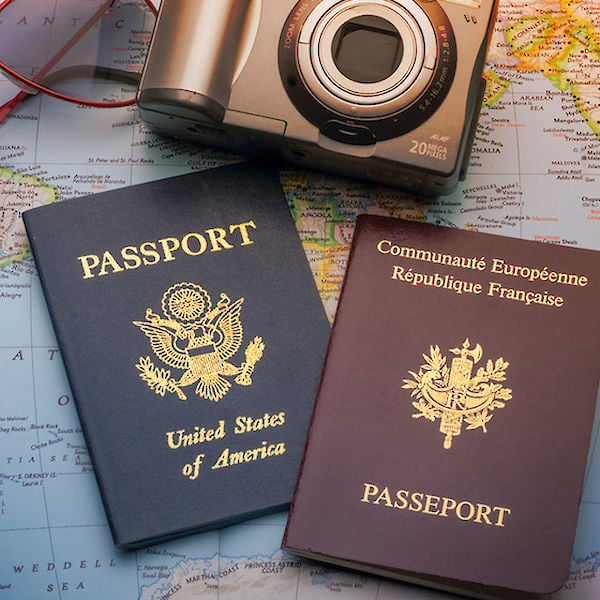Which Vaccines Do I Need for South Africa?
Which Vaccines Do I Need for South Africa?

Johannesburg is a bustling metropolis with an economy that attracts many for international business.
You could head to South Africa for a vacation.
Cape Town and Durban are some of the most popular vacation spots in the southern hemisphere. The coasts are lined with beaches and locals that immigrated from all over the world.
You could head to South Africa to see some wildlife.
Kruger National Park stretches across the north of the country, boasting over 150 different species.
It’s not that hard to find a reason to visit South Africa. Upon a trip to the African country, it also doesn’t take much effort to get sick. You can catch something from a mosquito or a local’s random cough. So, here’s some tips to stay healthy during a visit to South Africa.
Which Vaccines Do I Need for South Africa?
The best preventive measure for disease when travelling to South Africa is with immunizations. The Centers for Disease Control and World Health Organization recommend these vaccines:
Take a look at the individual pages or contact Passport Health for more information about each vaccine. Call us at to schedule an appointment or by booking online now.
African Tick-Bite Fever
Although not specific to South Africa, this bacterial infection is endemic throughout sub-Saharan Africa.
Symptoms can stay dormant for up to two weeks. You may then feel a fever, muscle soreness, headaches and a rash, along with a red skin sore with a dark center at the site of the bite.
There’s no vaccine for African tick-bite fever, with prevention a key to avoid the ticks.
Use many of the same methods you would use to stay away from dangerous mosquitoes.
Take advantage of insect repellents and cover your skin whenever near areas with ticks. This includes, wooded and grassy areas that are away from dry weather. Check for bites every day. If you find a tick on the body, pull from the base of the insect with tweezers to remove.
Mosquito netting can also prevent ticks and should always be used throughout South Africa, a country active with malaria and other mosquito-borne diseases.
Where Should I Go While Visiting South Africa?
As we mentioned before, South Africa is not short on places to visit.
The variety in terrains provides some options when it comes to exploring.
Even beyond Kruger National Park, wildlife reserves are common to South Africa. You can take a look at the rhinoceroses at Hluhluwe-Imfolozi Game Reserve or playful meerkats at Addo Elephant National Park.
Thrill-seekers will likely want to to stay near a coast.
Table Mountain in Cape Town is known for its abseiling, where tourists repel down a massive cliff. The Eastern Cape is home to Jeffreys Bay, one of the most popular surf locations in the world. You can even conquer a fear of heights at Bloukrans Bridge in the Western Cape, home to the world’s highest bungee jump.
But, Johannesburg is the best place to get a full taste of South Africa’s culture.
As its economy grows, so do the city’s attractions. Museums, landmarks and bars make up a city that prides itself on housing a bit of everything South Africa can offer.
Did we miss any South African health information or attractions? Let us know in the comments, or via Facebook and Twitter.
About Us
Passport Health’s blog provides travelers and travel enthusiasts with a variety of news and features. We focus on bringing the most interesting and relevant stories right to our readers. Topics range from the vaccines needed for a destination to updates on recent outbreaks, travel advice and much more. Feel free to check out some of our most popular posts, linked in the sidebar, or our most recent posts below
9 Immunizations You Should Have Before Traveling Abroad

You’re ready to see the world. You also want to stay healthy while you do it, and to be a responsible traveler. This article shares nine immunizations required or recommended for travel abroad, and guidelines to research and plan your vaccinations.
Immunization before travel protects your own health and your investment in your trip. Expert travelers know that nothing ruins time at a special destination like getting sick. Immunization also protects you against diseases with long-term health consequences, like polio or encephalitis.
That is why, since 1944, international travelers have needed immunizations for travel. The goal then and now is to promote public health and reduce the spread of diseases. After 2021, many countries updated their visa and visitor requirements to require immunization against COVID-19. Read on to learn about immunization and travel today.
The #1 Travel Immunization Is COVID-19 Immunization
Many countries now require COVID-19 immunizations for non-citizens and visitors to travel and visit.
Each country has its own specific requirements. Check to see what your destination requires. For a good example of this type of travel requirement, see the United States COVID-19 vaccine requirements for international travelers and the COVID-19 negative test requirement to enter the United States.
How do you find out what you need for your own trip? First, check your specific destination and the airline you are using. If your destination requires COVID-19 immunization, check the types of COVID-19 vaccine your destination accepts. Some countries approve specific COVID-19 vaccines: others approve nearly all COVID-19 vaccinations. Increasingly, countries and cruise lines are requiring that visitors have COVID-19 booster vaccines, too.
Next, find out who needs to see or have your proof of COVID-19 immunization for travel. You may need to provide proof of immunization to your airline to book travel and board flights. Customs may ask you for proof when you are traveling. At your destination, you may need to show proof of immunization again to enter restaurants or lodging.
Travelers not vaccinated against COVID-19 are allowed to enter some international destinations. But depending on the country’s rules they may incur additional expenses and delays in travel. In many cases, they must pay for COVID-19 tests and may be required to spend time in quarantine.
Best Travel Insurance With COVID-19 Coverage
Atlas Travel Insurance
- COVID-19 coverage outside your home country
- Choose between the basic and more extensive coverage
- Meets Schengen visa insurance requirements
- 24/7 worldwide travel and emergency medical assistance
Seven Corners Travel Insurance
- COVID-19 coverage outside your home country
- Comprehensive medical coverage from 5 days to 1 year
- Your choice of medical maximum and deductible options
- An extensive worldwide network of providers
Your Destination May Require Yellow Fever Immunization
Yellow fever is a disease transmitted by mosquitos that is endemic in parts of Africa and Central and South America. Over 60 countries have standards around yellow fever immunization for travelers. If you are traveling to or transiting through countries where yellow fever is present, get immunized against yellow fever before you go. Many countries will refuse entry if you have traveled through a yellow fever risk country and you do not have a valid yellow fever vaccination certificate. Learn more about countries with travel requirements for yellow fever immunization from the World Health Organization.
Get Up to Date with Routine Immunizations Before Travel
To reduce your risk of unexpected illness, many medical authorities recommend routine immunizations for travel. Both the World Health Organization and the United States Center for Disease Control (CDC) recommend that travelers are up to date with routine immunizations. These include:
- Diphtheria-Tetanus-Pertussis (whooping cough)
- Influenza
- Measles-Mumps-Rubella (MMR)
- Tetanus
- Typhoid Fever
- Polio
As of 2022, polio was reappearing in more countries. The CDC has travel advisories around polio, recommending polio immunizations for high-risk destinations. India requires visitors coming from countries with endemic polio to have a current oral polio vaccine. Long-term visitors to Pakistan, visiting four weeks or longer, must provide proof of polio immunization to leave Pakistan.

Some Destinations Call for Additional Immunizations
Some countries require or recommend that you have additional immunizations before you travel there. You may also want to safeguard yourself in remote locations with important selective vaccines.
If you plan to visit Saudi Arabia and see the global destination of Mecca, you must meet their meningitis immunization requirements. Meningococcal meningitis vaccines are also recommended for travel in many countries in sub-Saharan Africa.
Hepatitis A immunizations are recommended for most countries. Hepatitis B immunizations are recommended for many destinations in Asia and the Pacific, as well as Africa, South America and the Caribbean. These vaccines are usually three shots over a six-month period, so plan to get these well in advance.
Japanese encephalitis is an infection transmitted by mosquito bites. It causes a dangerous inflammation of the brain, and there is no cure for it. While the risk of a serious case of Japanese encephalitis is low, it is worthwhile getting vaccinated against it if you are visiting Asia, India, the South Pacific, and Australia.
Getting a rabies vaccine is worthwhile if you are traveling to have experiences with wild animals. Wildlife volunteers, and travelers who enjoy caving and spelunking, are at risk of rabies from animal bites or bat exposure in many locations.

How to Provide Proof of Immunization for Travel
Doctors recommend getting most travel immunizations four to six weeks before you travel. This ensures that immunization takes effect. It also gives you time to get your proof of immunization for travel.
Many travel-related vaccines will be recorded in a signed printout called the International Certificate of Vaccine or Prophylaxis (ICVP). This distinctive yellow document records which immunizations you have received and when. It is most often used to record yellow fever vaccines. As of March 2022, the ICVP is not currently used for COVID-19 vaccination records.
Instead, for proof of COVID-19 immunization, you can provide one or more of the following. Ask your doctor or your country’s medical authority to provide your COVID-19 proof of immunization. Often, there is a version for international travel. These can include:
- An immunization certificate with a QR code
- A digital pass on a phone app (United Kingdom National Health Service COVID pass, European Union Digital COVID certificate)
- A printout of an authorized national immunization record or immunization certificate (United States CDC COVID-19 vaccination card).
If you are traveling with children, make sure they are up to date on their vaccines before they travel. You will be responsible for providing their proof of immunization at borders and transit points, along with their passports and tickets.
For convenience, while traveling internationally, you may want to try the IATA travel pass app. It’s a convenient way to share your COVID-19 immunization with up to 59 airlines.
Does Insurance Cover Travel Immunizations?
Travel immunizations are not always covered by standard health insurance. But it is worth asking, because your insurance may cover some or all immunizations.
It’s possible to get travel immunizations at a reasonable cost. Travel health clinics charge a premium to immunize you quickly. You can shop around for less expensive immunizations – your family doctor can help. They may even be able to provide some travel immunizations for free under public health policies.
Get Accurate Information for Your Destination
To confirm vaccination requirements for your destination, especially for COVID-19, go directly to official visa or immigration authorities. Each country has its own requirements. Your home country, countries you’ve visited, and countries where you have travel transfers all affect immunization requirements.
Many private websites claim to have vaccination information for travelers. But it is often incomplete, out of date, or echoes World Health Organization recommendations (which are not the same as visa requirements).
At this time, immunization requirements change often. Along with official immigration websites, here are reliable sources with information on immunizations needed for travel:
Immunizations for Travel

International travelers open themselves up to health risks and diseases that can be very dangerous. It’s better to be prepared. Obtaining the proper immunizations for travel can eliminate the risk of contracting locally contained diseases – like yellow fever or parasites.
Traveler vaccination requirements vary based on the area of the world. In some regions, requirements may include getting a booster for a vaccination you already had as a child or getting your first dose of a typhoid immunization. Prior to departure, always work with a licensed healthcare provider to finalize your immunization plans and administration.
You can follow basic guidelines when planning a trip overseas to help determine if you should be immunized for travel.
- Check with the Centers for Disease Control (CDC) or a trusted healthcare provider to determine the most up-to-date vaccination needed for the area to which you are traveling. The CDC has an excellent tool to show the necessary immunizations.
- Get the proper immunizations as soon as you can. Some may require “rebound” time, so you’ll want to give yourself time to become yourself again.
- Double-check with your healthcare provider that your current immunizations are still relevant. You may need boosters of common vaccinations you may have received some time ago (tetanus/diphtheria, MMR, polio and yellow fever).
- Obtain a “yellow health card” for your trip overseas. This is an international certificate of vaccination (ICV) issued by the World Health Organization. Your healthcare provider must fill it out and then it will need an official stamp from the health department. You may need this card if traveling to an area where a yellow fever immunization is required.
- Be cautious if receiving a vaccination outside of your home country. Developing countries have less healthcare regulations and may administer immunizations that are unsanitary.
- Plan for the unexpected – equip yourself with travel insurance that provides you with medical coverage that fits the needs of your trip. This can often be fulfilled with a comprehensive plan, which includes medical coverage and medical evacuation coverage.
What Travel Vaccinations Do I Need?
Certain areas of the world are more prone to diseases and health risks than others, so immunization requirements are typically different for each country. The CDC regularly updates requirements for travel vaccinations by destination, which is a great resource for international travelers.
The first step any traveler should take is to make sure all their previous immunizations are up to date. Check with your healthcare professional to ensure your shots are still current and that you don’t need any booster shots before traveling. Standard vaccinations help protect against many of the world’s most common health risks.
What are the Most Common Travel Vaccinations?
While there are many different immunizations required for travel, some of the most common include inoculations for:
- Yellow Fever
- Hepatitis A
- Hepatitis B
- Polio
- Measles/Mumps/Rubella
- Tetanus/Diphtheria
- Typhoid
- Japanese B Encephalitis
- Tick-Borne Encephalitis
- Rabies
Where Can I Get Vaccinations for Travel?
Your first stop for travel vaccines should always be your doctor’s office. Your primary care physician will have access to your vaccination history and can recommend booster shots or new immunizations where necessary. With that said, a typical doctor’s office is unlikely to have access to every travel vaccine you may need. For example in the case of yellow fever, only authorized yellow fever vaccination centers can administer these injections.
- Your Doctor’s Office
- State, City or County Health Department
- Travelers’ Health Clinics
- Specialized Travel Vaccination Centers
When Should I Get Travel Vaccinations?
The best time to get vaccinated for your trip depends on your date of departure. The CDC recommends having immunizations at least 4 to 6 weeks beforehand so the inoculations have sufficient time to take full effect.
Scheduling appointments with your doctor or specialized travel vaccination clinics may take time though, so it’s best to plan ahead to avoid an extended waiting period. Sometimes travel vaccines require a series of shots over the course of a month, so you’ll want to keep that in mind when planning your immunization appointments.
How Long Do Travel Vaccinations Last?
The duration of protection for travel immunizations varies, depending on the vaccine. Some travel vaccines, like inoculations for polio, hepatitis A and B, tetanus, and diphtheria last around ten years or more. Yellow fever vaccine is considered good for life. Other immunizations have shorter lifespans, including shots for rabies, typhoid, Japanese B encephalitis, and tick-borne encephalitis, which last between one and three years.
Is There a Vaccine for Malaria?
Unfortunately, there is no vaccine for malaria, but anyone planning on traveling to Africa, Central or South America, the South Pacific, and certain parts of Asia may want to look into Chemoprophylaxis, which is a preventative drug treatment for the disease. Check with your doctor to find out if Chemoprophylaxis is right for you. The drug treatment does have side effects and is not 100 percent effective, but it may be appropriate for travelers visiting malaria-prone regions. Other anti-malaria treatments include: Malarone, Mefloquine, Paludrine, Chloroquine, and Doxycycline.
Do I Really Need Vaccinations for Travel?
Vaccinations are required for travel to some regions of the world, especially in the case of yellow fever. Without the proper documentation, visitors may be denied entry into the country.
While it’s true that some travelers choose not to get vaccinated and do not contract diseases on their trips, vaccines exist for a reason and can be the difference between life and death for some travelers. Although travel immunizations are not free, they aren’t unaffordable either especially when you consider the total cost of a trip overseas. Getting the proper vaccines before traveling is always the best approach.
Related Articles

Do I Need a Passport?

Travel Documents You’ll Want to Remember on a Trip

Insuring Your Overseas Adventure Trip
Ask an Expert
Be the first to ask a question for this subject.
It looks like you are getting insurance for only one day of travel, is this correct?
We use cookies to enhance your user experience. By using our site and/or accepting here, you are agreeing to our updated Privacy Policy.
Source https://www.passporthealthglobal.com/2016/12/which-vaccines-do-i-need-for-south-africa/
Source https://www.internationalinsurance.com/news/travel-immunizations/
Source https://www.insuremytrip.com/travel-advice/travel-planning/immunizations-for-travel/